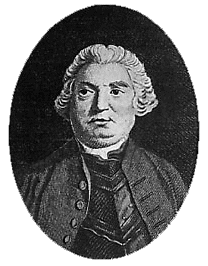 |

 |
 |

 |

December 8, 2000 Halifax Herald
All doubletalk, no action on repealing proclamation I recently acquired a copy of a letter written on July 27, 2000, by Indian Affairs Minister Robert D. Nault to the Mi'kmaq Chiefs of Nova Scotia. Its purpose was to try to communicate to the Chiefs an impression that the government had responded positively to their request to have a proclamation for Mi’kmaq scalps, issued by Governor Charles Lawrence in 1756, repealed. These quotes highlight the doubletalk:
"The government of Canada committed in Gathering Strength and its Statement of Reconciliation to make historic and modern treaties a basis for developing a strengthened and forward-looking partnership with Aboriginal people. Canada, the Mi'kmaq and Nova Scotia also expressed a commitment to partnership in their Tripartite Treaty Commemoration Statement of October 1, 1998.
“In the Statement of Reconciliation, the Government of Canada formally expressed its profound regret to all Aboriginal people in Canada for past actions which have contributed to difficult pages in the history of our relationship together.
“It is in this spirit that the Government of Canada confirms, for greater certainty, that the 1756 Proclamation is no longer of any force or effect.
“I can assure you that the federal government appreciates your desire to resolve issues from our common past, and looks forward to continue working with the Nova Scotia Mi'kmaq to address unresolved issues and build stronger partnerships."
Partnerships and trust cannot be built by one party using condescending, paternalistic doubletalk to try to avoid being honest with the other. Contrary to the impression implied in paragraph three, the government definitely did not take the steps it needed to take to officially repeal the Proclamation.
Maureen Googoo, a reporter with the Aboriginal Peoples Network, verified this by checking with the Clerk of the Privy Council Office, who confirmed that no such minute detailing government action was issued. Even if it had been issued, the wording used would not have erased the Proclamation from the books. It would only have confirmed what we already know, that it is dormant.
This leads to a question: Why would the federal government try to use political spin to try to weasel its way out of repealing a document that makes the following repugnant genocidal statement? "We, by and with the advice and consent of His Majesty's Council, do hereby authorize and command all officers civil and military, and all His Majesty's Subjects, to annoy, distress, take and destroy the Indians inhabiting different Parts of the Province, wherever they are found; and all such as may be siding or assisting to them...."
Human decency would lead one to reject that it wanted to leave it on the books just in case it was deemed that a more forceful method might be needed to resolve the "Mi'kmaq problem." Although anything is possible, the more likely explanations are that repealing it might have some adverse legal implications for Canada, like forcing it to pay reparations. This is followed by the fact it would lay bare and publicize the barbarity of one of the country's exalted colonial British leaders, Governor Charles Lawrence. Another explanation holding considerable validity is that it would lend weight to the drive by Acadiens to have England apologise for the brutal expulsion of their ancestors by Lawrence.
I'll dissect the legal angle first: The legal culpability that federal governments have amassed over the years by dereliction of duty when carrying out their Indian and Indian lands constitutional trust responsibilities has created a legal nightmare that haunts all aspects of present federal relationships with First Nations. For example, the only reason that they haven't made a full blown apology for the horrors that went on in residential schools is fear of legal consequences. Such is ludicrous in the face of the fact that it’s getting sued anyway and losing a bundle.
Because of the afore mentioned paranoia this piece of logic probably hasn't even been considered by politicians: unconditionally apologizing to First Nations for the horrors caused them by colonial and Canadian governments over the centuries might reduce lawsuits dramatically. Justice is what is wanted, not spiteful vengeance - such is a sin that is alien to most First Nation cultures.
Now the angle of trying to avoid the pain of admitting to the barbarity of colonial officials: The inhumanity of many of Great Britain's colonial leaders has already been proven and widely publicized. Thus, to publicly condemn the efforts made by them to exterminate the ancestors of the modern day Mi'kmaq as inhuman and indefensible would not shock anyone. Pretending that these horrors didn't occur will not erase them from memory - nothing will.
Therefore, the Government of Canada must do what is right and pass a motion to repeal Lawrence's inhuman Proclamation. If a cabinet motion won't accomplish the task, then it must have Parliament do it. Tolerating such a hideous document on the books, although dormant, is unforgivable and does not speak well for a country that claims to be civilized.
Daniel N. Paul
DANIEL N. PAUL